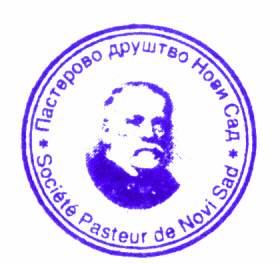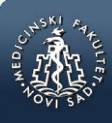md-medicaldata
Main menu:
- Naslovna/Home
- Arhiva/Archive
- Godina 2024, Broj 1
- Godina 2023, Broj 3
- Godina 2023, Broj 1-2
- Godina 2022, Broj 3
- Godina 2022, Broj 1-2
- Godina 2021, Broj 3-4
- Godina 2021, Broj 2
- Godina 2021, Broj 1
- Godina 2020, Broj 4
- Godina 2020, Broj 3
- Godina 2020, Broj 2
- Godina 2020, Broj 1
- Godina 2019, Broj 3
- Godina 2019, Broj 2
- Godina 2019, Broj 1
- Godina 2018, Broj 4
- Godina 2018, Broj 3
- Godina 2018, Broj 2
- Godina 2018, Broj 1
- Godina 2017, Broj 4
- Godina 2017, Broj 3
- Godina 2017, Broj 2
- Godina 2017, Broj 1
- Godina 2016, Broj 4
- Godina 2016, Broj 3
- Godina 2016, Broj 2
- Godina 2016, Broj 1
- Godina 2015, Broj 4
- Godina 2015, Broj 3
- Godina 2015, Broj 2
- Godina 2015, Broj 1
- Godina 2014, Broj 4
- Godina 2014, Broj 3
- Godina 2014, Broj 2
- Godina 2014, Broj 1
- Godina 2013, Broj 4
- Godina 2013, Broj 3
- Godina 2013, Broj 2
- Godina 2013, Broj 1
- Godina 2012, Broj 4
- Godina 2012, Broj 3
- Godina 2012, Broj 2
- Godina 2012, Broj 1
- Godina 2011, Broj 4
- Godina 2011, Broj 3
- Godina 2011, Broj 2
- Godina 2011, Broj 1
- Godina 2010, Broj 4
- Godina 2010, Broj 3
- Godina 2010, Broj 2
- Godina 2010, Broj 1
- Godina 2009, Broj 4
- Godina 2009, Broj 3
- Godina 2009, Broj 2
- Godina 2009, Broj 1
- Supplement
- Galerija/Gallery
- Dešavanja/Events
- Uputstva/Instructions
- Redakcija/Redaction
- Izdavač/Publisher
- Pretplata /Subscriptions
- Saradnja/Cooperation
- Vesti/News
- Kontakt/Contact
 Pasterovo društvo
Pasterovo društvo
- Disclosure of Potential Conflicts of Interest
- WorldMedical Association Declaration of Helsinki Ethical Principles for Medical Research Involving Human Subjects
- Committee on publication Ethics
CIP - Каталогизација у публикацији
Народна библиотека Србије, Београд
61
MD : Medical Data : medicinska revija = medical review / glavni i odgovorni urednik Dušan Lalošević. - Vol. 1, no. 1 (2009)- . - Zemun : Udruženje za kulturu povezivanja Most Art Jugoslavija ; Novi Sad : Pasterovo društvo, 2009- (Beograd : Scripta Internacional). - 30 cm
Dostupno i na: http://www.md-medicaldata.com. - Tri puta godišnje.
ISSN 1821-1585 = MD. Medical Data
COBISS.SR-ID 158558988
ISPITIVANJE UTICAJA EGZOGENIH FAKTORA NA FLUIDNOST ĆELIJSKE MEMBRANE SPERMATOZOIDA I KONCENTRACIJU SLOBODNIH RADIKALA (TIOLA I ASKORBIL-RADIKALA) U SEMENOJ TEČNOSTI KOD PACIJENATA SA NARUŠENIM KVALITETOM SPERMOGRAMA
/
EXAMINING THE IMPACT OF EXOGENOUS FACTORS ON THE FLUIDITY OF SPERM CELL MEMBRANES AND THE CONCENTRATION OF FREE RADICALS (THIOLS AND ASCORBYL RADICALS) IN SEMINAL FLUID IN PATIENTS WITH IMPAIRED SEMEN QUALITY
Authors
Tamara Živić1,2, Eliana Garalejić2, Strahinja Križak2, Aleksa Radivojević2, Artur Bjelica1,3 UDK: 612.612.2
The paper was received / Rad primljen: 15.07.2024 Accepted / Rad prihvaćen: 18.07.2024. Sažetak Prema podacima Svetske zdrastvene organizacije (WHO-SZO), stopa infertilnosti je u stalnom porastu. Ovo je naročito izraženo u kategoriji muškaraca mlađe životne dobi što je veoma važno, jer su kvalitet sperme i muški fertilitet bitni pokazatelji, ne samo reproduktivnog, već opšteg zdravlja organizma. Cilj ovog preglednog rada je da se utvrdi povezanost i značaj pojedinačnih faktora koji dovode do povećane koncentracije slobodnih radikala (tj. oksidativnog stresa) i narušavaju kvalitet spermograma kao i njihov uticaj na fluidnost ćelijske membrane spermatozoida. Rana i pravovremena detekcija slobodnih radikala je od presudnog značaja za homeostazu čitavog organizma. Adekvatna fluidnost membrane spermatozoida je neophodna za njihovu pokretljivost i za fuziju spemratozoida sa jajnom ćelijom. Za održavanje homeostaze organizma neophodni su i antioksidanti. Glutation i askorbinska kiselina su neenzimski antioksidanti, gde se nakon njihove primene beleže bolji nalazi spermograma. Ključne reči: spermatozoid, slobodni radikal, oksidativni stres, polinezasićene masne kiseline (PUFA), fluidnost, glutation, askorbinska kiselina. Abstract According to data from the World Health Organization (WHO), the rate of infertility is constantly increasing. This is particularly evident among younger men, which is significant because sperm quality and male fertility are important indicators of not only reproductive but also general health. The aim of this review article is to determine the correlation and significance of individual factors that lead to increased concentrations of free radicals (i.e., oxidative stress) and impair semen quality, as well as their impact on the fluidity of sperm cell membranes. Early and timely detection of free radicals is crucial for the homeostasis of the entire organism. Adequate membrane fluidity of sperm is necessary for their motility and for the fusion of sperm with the egg cell. Antioxidants are also essential for maintaining the homeostasis of the organism. Glutathione and ascorbic acid are non-enzymatic antioxidants, and their application results in improved semen quality. spermatozoon, free radical, oxidative stress, polyunsaturated fatty acids (PUFA), fluidity, glutathione, ascorbic acid. References: PDF: 05-Živić T. et al MD-Medical Data 2024;16(2) 105-108.pdf
1Medicinski fakultet Novi Sad, Univerzitet u Novom Sadu, Novi Sad, Srbija
2Specijalna bolnica za ginekologiju sa porodilištem „Jevremova“, Beograd, Srbija
3Klinika za ginekologiju i akušerstvo, Univerzitetski klinički centar Vojvodine, Novi Sad, Srbija/p>
Correspondence to:
Tamara Živić
Univerzitet u Novom Sadu, Medicinski fakultet;
Specijalna bolnica za ginekologiju sa porodilištem “Jevremova“ Medigroup, Beograd
tel.: 065 2333 781
e-mail: zivictamara175@gmail.com.rs
Key words:
 Medicinski fakultet
Medicinski fakultet